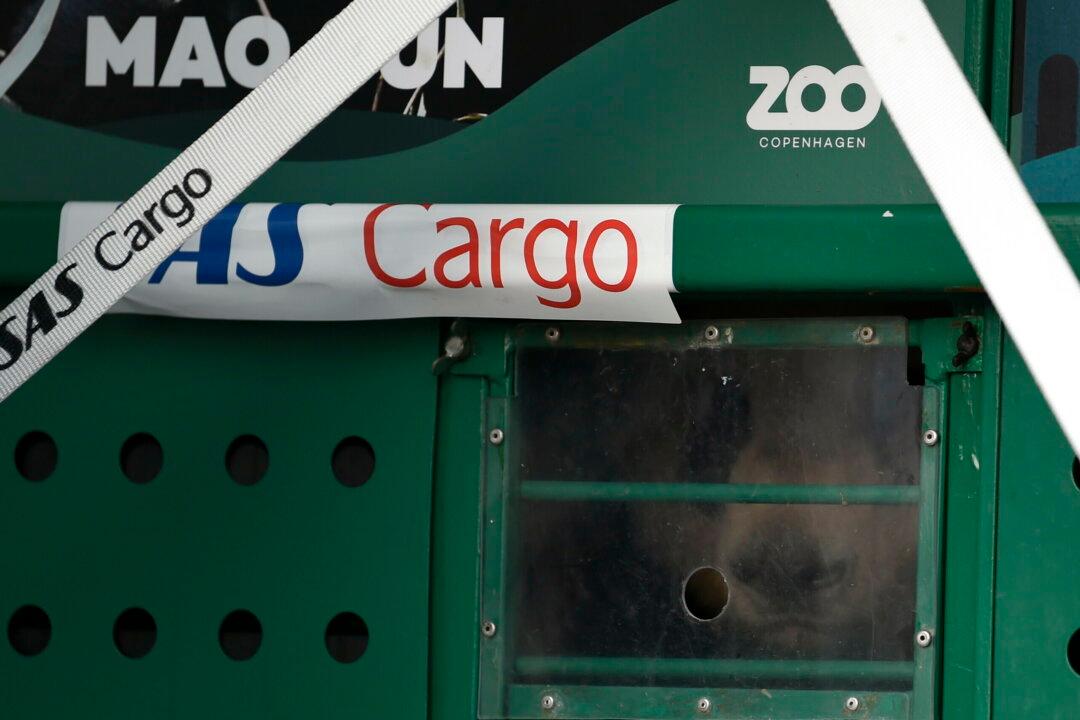COPENHAGEN—An expert panel in Denmark has warned about the gamut of tactics employed by the Chinese regime to allegedly interfere with foreign politics and national security as two cuddly pandas arrive in Copenhagen Zoo from China.
Expert Panel Warns About Chinese Regime’s Infiltration as 2 Pandas Arrive in Denmark Zoo

The boxes carrying two Giant Pandas named Xing Er and Mao Sun is unloaded from the plane on its arrival at Copenhagen Airport, on April 4, 2019. Liselotte Sabroe/Ritzau Scanpix via AP
Janita Kan
Writer
|Updated:



